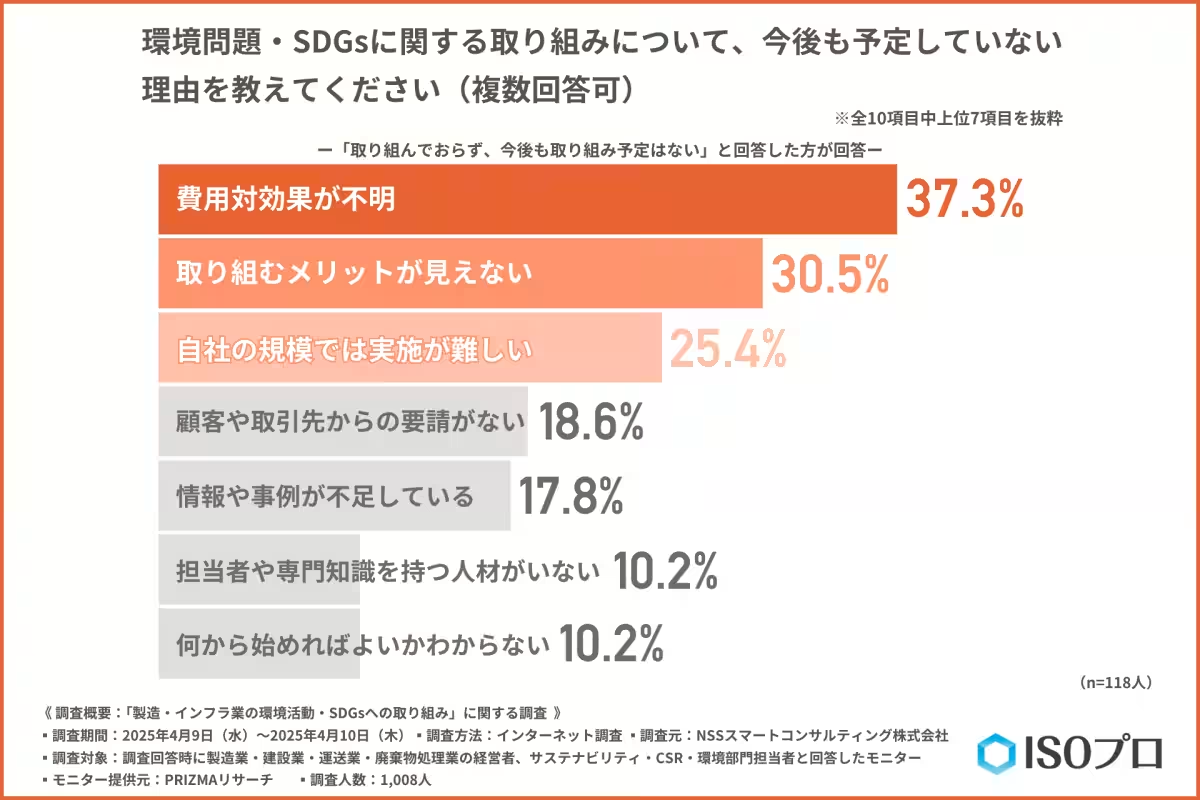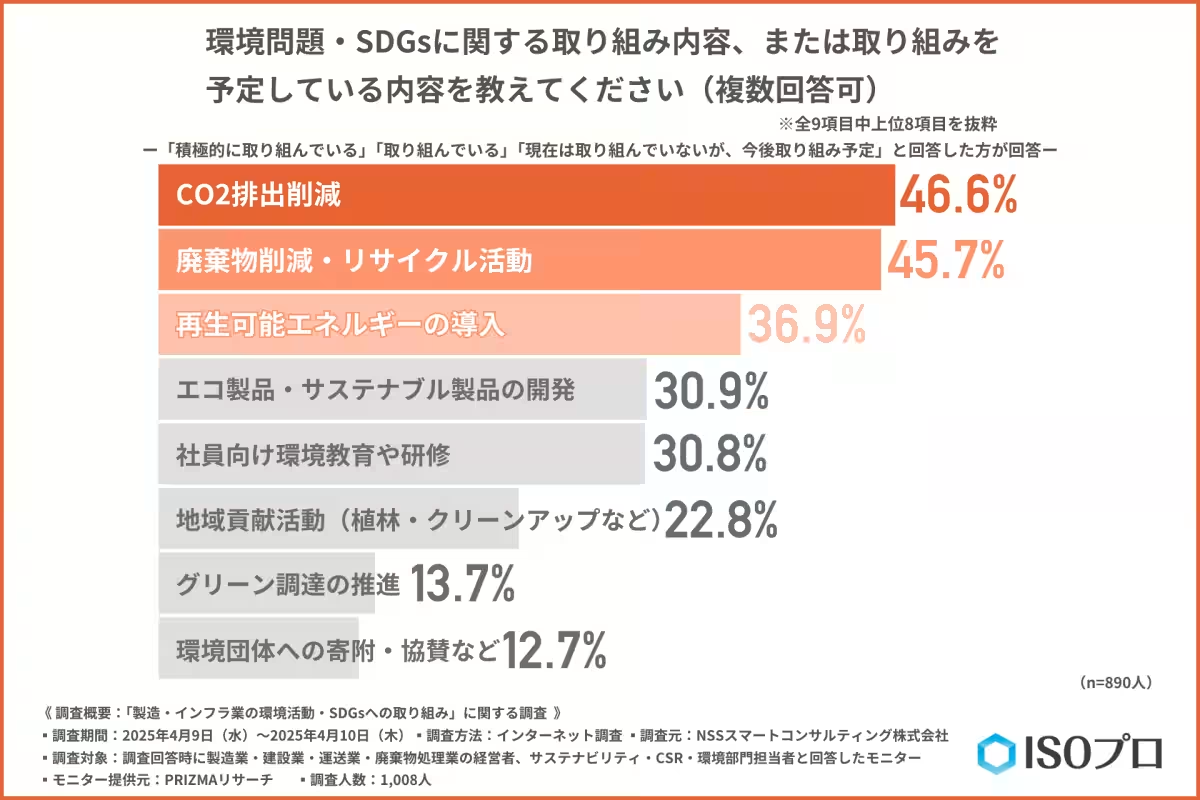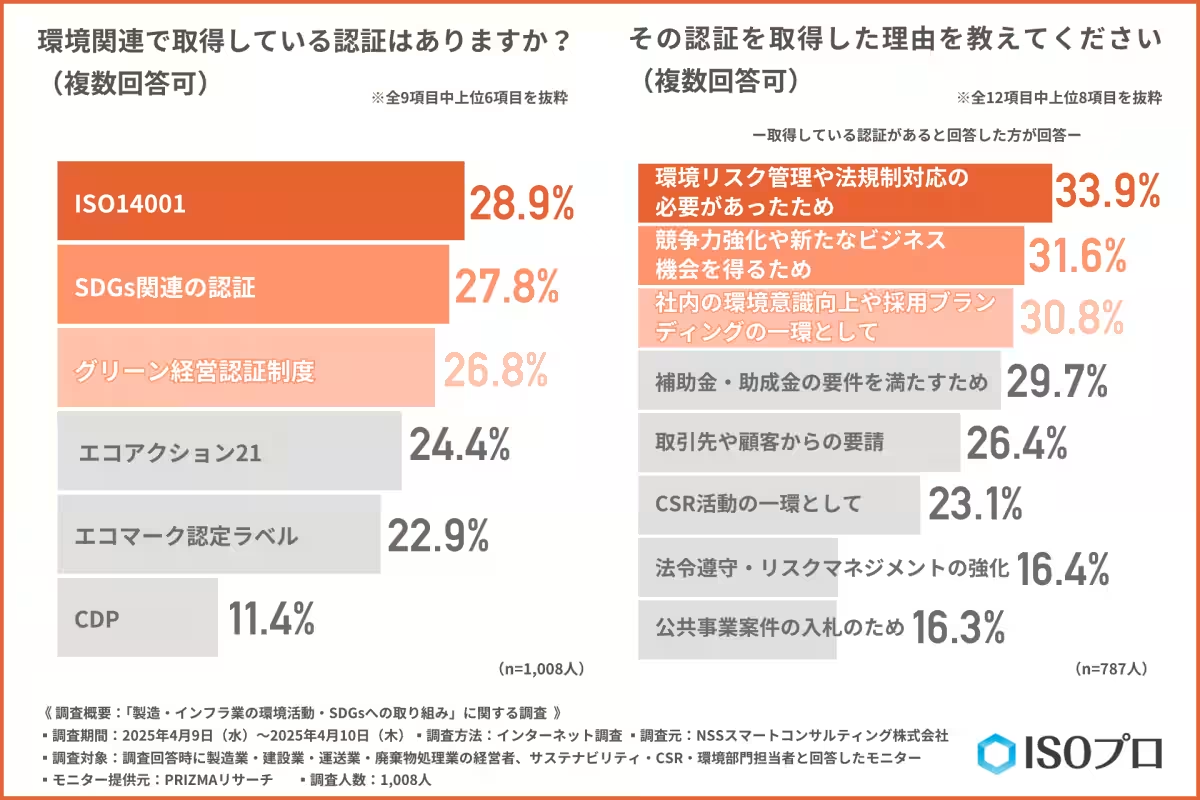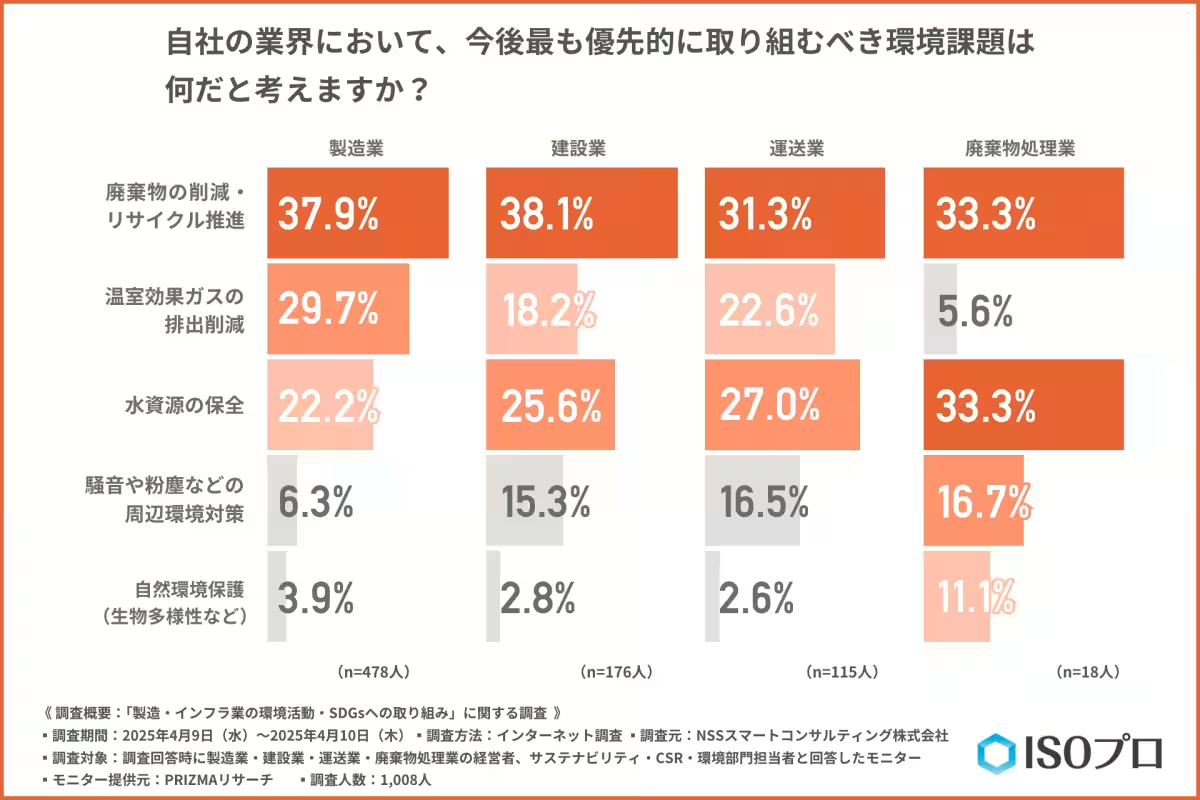

Reflecting on Corporate Responsibility on Earth Day: The Urgent Need for Environmental Strategies and Response to SDGs
Corporate Responsibility and Environmental Strategy on Earth Day
April 22nd marks Earth Day, a day dedicated to promoting awareness and action for environmental protection across the globe. As various initiatives take place in different countries, there’s a mounting pressure for Japanese companies to contribute to a sustainable society. Among these, the manufacturing and infrastructure sectors have a significant impact on the environment, making their commitment to environmental strategies and the Sustainable Development Goals (SDGs) critically important.
In light of this, NSS Smart Consulting Co., Ltd., which operates the ISO acquisition and management support site 'ISO Pro,' conducted a survey focusing on the environmental activities and SDG initiatives of leaders in the manufacturing, construction, transportation, and waste management industries.
Survey Overview
The survey, conducted over two days on April 9th and 10th, 2025, employed internet-based research through PRIZMA, engaging a total of 1,008 respondents specifically targeting managers and sustainability professionals in relevant industries. The survey sought to gather insights into the environmental practices and strategies being employed to align with SDGs.
Key Findings
Results showed that over 70% of the surveyed companies are actively engaging in environmental and SDG-related initiatives, with 32.8% being highly proactive and 39.6% engaging in some capacity. This reveals a substantial number of businesses are taking steps toward addressing environmental concerns.
Despite this encouraging trend, the survey also unveiled risks for companies that fail to prioritize environmental engagement. A notable 47.8% of respondents identified a decline in brand value as the most significant risk, followed closely by 42.8% who mentioned delayed compliance with regulations, and 37.9% indicated difficulties in attracting and retaining talent. These results imply that environmental engagement is increasingly perceived as integral to long-term business strategy rather than merely a CSR initiative.
Conversely, those who reported no current or future plans to engage in such initiatives often cited reasons such as unclear cost-effectiveness (37.3%), lack of visible benefits from involvement (30.5%), and challenges related to company size (25.4%). These insights point to significant barriers, particularly for smaller enterprises wary of the investment required to implement environmental strategies.
Actionable Initiatives in Focus
Among companies engaged in environmental practices, top current or projected initiatives include CO2 emission reductions (46.6%), waste reduction and recycling efforts (45.7%), and the introduction of renewable energy sources (36.9%). This highlights a focus on practical actions directly related to operational processes, gravitating towards feasible and effective initiatives that can be realistically implemented in daily operations.
It’s also noteworthy that many companies recognize the need for employee training to foster a culture of environmental awareness within their organizations. This indicates that internal engagement is seen as crucial to long-term success.
Many companies indicated that motivations for beginning or planning these initiatives stem from concerns about climate change, the desire to enhance corporate image, and the influence of clients or parent companies regarding sustainability goals. This indicates a widespread understanding that such actions not only mitigate risks but can also enhance competitive advantage and overall company reputation.
Evaluation and Measurement Challenges
The survey also delved into how companies evaluate their environmental initiatives. Notably, 54.8% rely on qualitative assessments through surveys and employee feedback, while 53.6% utilize quantitative metrics like CO2 emissions for management. Approximately 30.6% report using third-party evaluations, demonstrating a varied approach to effectiveness measurement.
However, over 90% of companies expressed the difficulty in understanding the effectiveness of their initiatives, making it clear that establishing suitable metrics for evaluation remains a significant challenge. This lack of clarity can hinder the effectiveness of internal advocacy and stakeholder communication.
Future Directions in Environmental Policies
When discussing the environmental certifications held by these companies, roughly 28.9% reported obtaining ISO 14001, while 27.8% achieved SDGs-related certification. The rationale behind pursuing these standards mainly revolves around environmental risk management and the need to adhere to regulatory compliance. It also points to a collective shift towards considering sustainability as a strategic business necessity rather than a mere obligation.
In conclusion, despite the positive indicators of engagement in environmental initiatives within manufacturing and infrastructure sectors, the disparities in the depth of involvement and the prevalent challenges require immediate attention. The emphasis on practical action tailored to individual sector requirements, alongside effective evaluation mechanisms, is crucial for fostering a sustainable future. As companies explore avenues for incorporating proactive environmental strategies, collaborative efforts involving companies, support organizations, and governments are vital in laying the framework for robust environmental management strategies. Adopting initiatives such as ISO frameworks can significantly enhance operational sustainability that meets both environmental and business objectives.







Topics Environment)










【About Using Articles】
You can freely use the title and article content by linking to the page where the article is posted.
※ Images cannot be used.
【About Links】
Links are free to use.